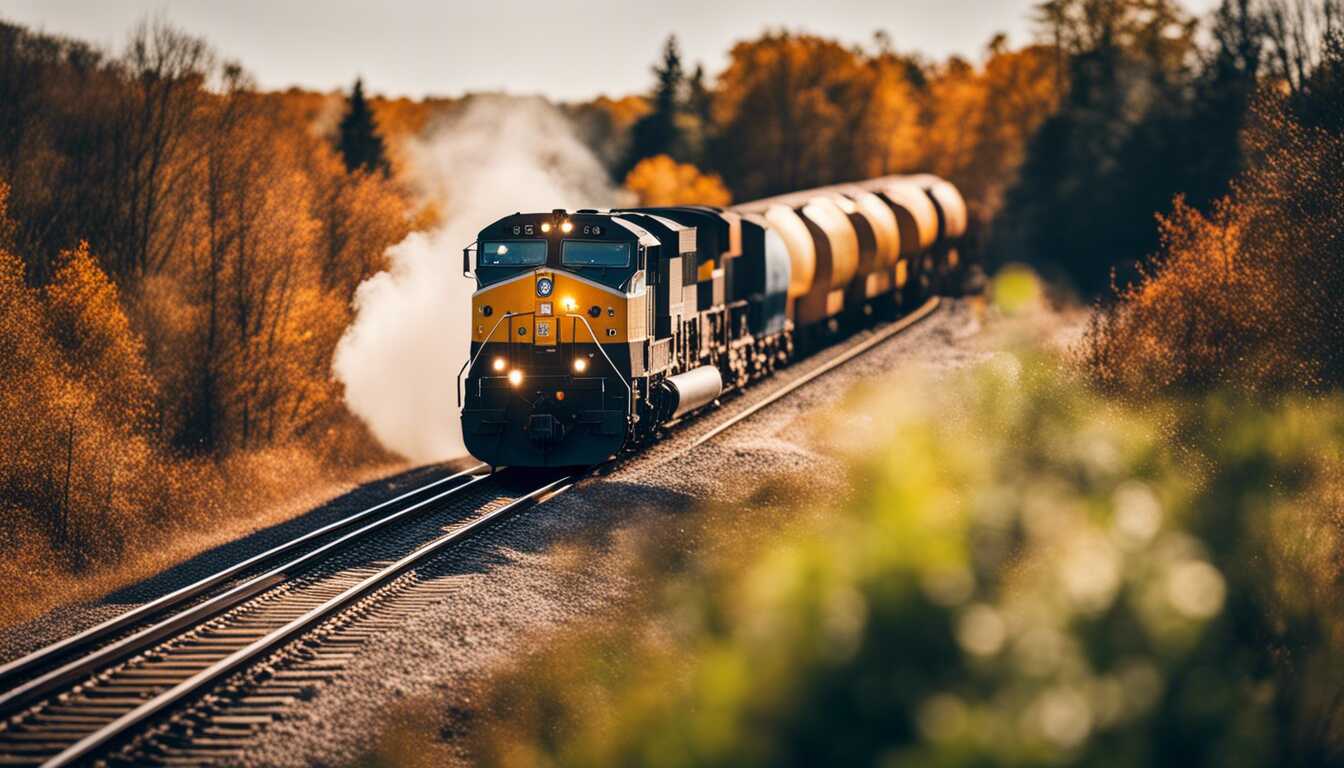
The Fight for Rail Safety Legislation: A Year After the East Palestine Derailment

One Year After East Palestine Derailment: Norfolk Southern's Battle Over Safety Legislation
One year after the derailment of a Norfolk Southern freight train in East Palestine, Ohio, which caused the release of toxic chemicals into the air and soil, the rail operator and the U.S. government remain embroiled in a contentious battle over proposed safety legislation. Despite promises of change and improvements from Norfolk Southern’s chief executive, the company has joined other leading freight railroads in lobbying against the newly proposed Railway Safety Act, which aims to enhance rail inspections, improve derailment-detection technology, and bolster safeguards for hazardous materials. The industry’s opposition, coupled with significant lobbying efforts and political donations, has stalled the progress of the bill in Congress, leaving communities and environmental advocates concerned about the ongoing risks posed by freight train operations.
Defiant Lobbying Efforts
Norfolk Southern and other major rail operators have committed substantial resources to lobbying activities, with approximately $17 million collectively spent in the past year. These efforts have been complemented by generous donations to key lawmakers overseeing transportation issues, particularly targeting Republican legislators. Despite public pledges to collaborate with policymakers on the proposed safety legislation, the companies have actively sought to weaken or eliminate critical provisions of the bill through their lobbying endeavors.
Challenges and Obstruction
The intense lobbying has resulted in a gridlock in Congress, preventing any significant advancement of the proposed rail safety legislation. This legislative impasse has left the community of East Palestine, Ohio, still grappling with the aftermath of the derailment, as they continue to address environmental contamination and economic losses caused by the incident. While federal investigations are underway, local leaders and residents are faced with the lingering impacts of the derailment, further highlighting the urgent need for comprehensive rail safety measures.
Lack of Congressional Action
The rail industry’s lobbying efforts have effectively thwarted the consideration and progress of the Railway Safety Act in Congress, undermining the bill’s potential to address critical safety gaps and prevent future accidents. Despite the Biden administration’s efforts to ramp up regulatory measures and improvements, including increased track inspections and the implementation of new rules for trains transporting hazardous materials, the resistance from the rail industry and its allies has posed significant challenges to comprehensive safety reforms.
The Industry's Opposition and Perspectives
Notably, the rail industry has vehemently opposed certain provisions of the bill, particularly those related to the installation of track sensors and the requirement for two-person crews on freight trains. Industry representatives have argued that existing safety measures and self-regulation efforts are sufficient to address safety concerns, despite the persistent calls for more rigorous and standardized safety protocols from various stakeholders, including lawmakers, safety experts, and affected communities.
Political Influence and Legislative Stagnation
The rail industry’s substantial political contributions and strategic engagement with lawmakers, particularly Republican members of Congress, have played a pivotal role in obstructing the advancement of the rail safety legislation. Through lobbying activities and targeted donations, the industry has effectively shaped the discourse and legislative agenda, leading to a protracted deadlock in Congress and preventing crucial debates and decisions on the proposed safety measures.
Community Impact and Ongoing Concerns
The derailment in East Palestine has underscored the critical need for comprehensive rail safety reforms and regulatory enhancements to mitigate the risks associated with freight train operations. As federal investigations continue and local communities grapple with the aftermath of the incident, the lack of progress on the proposed safety legislation has left residents, environmental advocates, and lawmakers increasingly concerned about the potential for future accidents and environmental hazards stemming from freight rail operations.
Looking Ahead
As the battle over rail safety legislation intensifies, the ongoing stalemate in Congress underscores the significant influence wielded by the rail industry and the challenges in enacting comprehensive safety reforms. The need for meaningful collaboration and decisive action to address the vulnerabilities in the nation’s freight rail system remains a pressing concern, requiring a concerted effort from policymakers, industry stakeholders, and advocacy groups to prioritize the safety of communities and the environment.
Share news















